

The Great Powers and the Persian Gulf
EDITED BY
JEFFREY R. MACRIS AND SAUL KELLY
Naval Institute Press
Annapolis, Maryland
Naval Institute Press
291 Wood Road
Annapolis, MD 21402
2012 by Jeffrey R. Macris
All rights reserved. No part of this book may be reproduced or utilized in any form or by any means, electronic or mechanical, including photocopying and recording, or by any information storage and retrieval system, without permission in writing from the publisher.
Library of Congress Cataloging-in-Publication Data
Imperial crossroads : the great powers and the Persian Gulf / edited by Jeffrey R.
Macris and Saul Kelly.
p. cm.
Includes bibliographical references and index.
ISBN 978-1-61251-094-1 1. Persian Gulf Region
Foreign relations. 2. Persian Gulf RegionStrategic aspects. 3. Persian
Gulf RegionHistory. 4. Great powersHistory. I. Macris, Jeffrey R. II.
Kelly, Saul, 1957
DS326.I52 2012
953dc23
2012008457
 This paper meets the requirements of ANSI/NISO z39.48-1992
This paper meets the requirements of ANSI/NISO z39.48-1992
(Permanence of Paper).
20 19 18 17 16 15 14 13 12 9 8 7 6 5 4 3 2 1
First printing
The views expressed in this work reflect those of the individual authors, and not necessarily those of the U.S. or UK governments, any branch of their military services, or any academic institution affiliated with them.
FOR OUR PARENTS
CONTENTS
RUDI MATTHEE
VIRGINIA LUNSFORD
ROBERT JOHNSON
SAUL KELLY
JEFFREY R. MACRIS
TORE T. PETERSEN
CLIVE JONES
FRANK L. JONES
JASON H. CAMPBELL
JAMES R. HOLMES AND TOSHI YOSHIHARA
BEN SIMPFENDORFER
F or centuries the worlds great powers, along with their fleets, armies, and intelligence services, have been drawn to the Persian Gulf region. Lying at the junction of three great continentsAsia, Europe, and Africaand sitting athwart the oceanic trade routes that link the cities of the world, the Gulf, like a magnet, has pulled superpowers into the shallow waters and adjacent lands of the six-hundred-mile-long appendage of the Indian Ocean. An observer at Hormuz at the mouth of the Gulf would alternately have watched pass in the fifteenth century the treasure ships of Chinese admiral Zheng He, in the sixteenth century the caravels of Portuguese admiral Afonso de Albuquerque, in the seventeenth century the merchant ships of the Dutch East India Company, in the eighteenth to the twentieth centuries the frigates and steamships of the British, and finally in the late twentieth century to today, the cruisers and aircraft carriers of the U.S. Fifth Fleet. Perhaps in the future the Americans may be supplanted by the Indians, or maybe the Chinese.
In the great powers comings and goings since the 1400s, several consistent broad interests emerged. For the majority of this time, for example, the superpowers entered the Gulf region not to colonize, as the Europeans did in other places, but rather to further trade, which in the twentieth century increasingly included oil. They also sought a military presence in the Gulf to protect seaborne flanks to colonial possessions farther east, on the Indian subcontinent and beyond; India, in fact, has long cast a shadow over the Gulf, given its historic trade and cultural ties to the Gulf region, strong ties that continue today. In their geopolitical jockeying, furthermore, the great powers sought to deprive their rivals of access to the states bordering the Gulf region. In tending to these enduring interests inside the Strait of Hormuz, the great powers, throughout history, concentrated their trade, political, and military presence along the coasts and in the littorals. Not surprisingly, their navies have played a substantive role.
Imperial Crossroads is a collection of connected chapters, each of which investigates a different perspective in the broader subject of the great powers and their involvement with the states of the Persian Gulf. This volume concentrates on four Western nationsPortugal, Holland, Britain, and the United Statesand concludes with a look at the possible future involvement of two rising Asian powersChina and India. This book emerged from the proceedings of the Gulf and the Globe conferences, a series of interdisciplinary gatherings of distinguished historians, political scientists, military officers, diplomats, and businessmen from around the world, the first of which took place in Annapolis, Maryland, in 2009, jointly sponsored by the U.S. Naval Academys Center for Middle East and Islamic Studies, and the UKs Joint Services Command and Staff Colleges Corbett Centre for Maritime Policy Studies.
That the diminutive coastal states of Portugal and the Dutch Republic played a prominent role in the affairs of the Persian Gulf in the sixteenth and seventeenth centuries is remarkable. The states, after all, were physically smalltogether, both would fit into the American state of Pennsylvaniawith populations to match their sizes. Both states shared a deep maritime heritage, however. Portugals position alongside the Atlantic at the westernmost point of Europe, for example, made its people naturally turn toward the sea. Likewise, during the late European Middle Ages, Dutch merchants set off from their ports on the North Sea to trade with others in the Hanseatic League.
Prince Henry the Navigator launched the Portuguese into their leading role in the Age of Discovery with his founding in the early 1400s of a school that brought together shipbuilders, cartographers, and sailors. Shortly thereafter Portuguese sailors probed the western coast of Africa, sailing south of the legendary sea monsters of Cape Bojador, past which no European had dared to venture. In the 1480s the Portuguese rounded the Cape of Good Hope, and in 1498 Vasco da Gama arrived on the west coast of India. Taking advantage of the maneuverability of their seagoing ships and the long range of their cannon, the Portuguese dominated their lightly armed foes in Africa and Asia, and shattered the monopoly on trade with the East that for centuries had been the preserve of the Muslim empires of the Middle East. For the next century the Indian Ocean became a virtual Portuguese sea. But Portugals preeminence in the Indian Ocean would be challenged by other Atlantic powers. By the mid-1600s the English, Dutch, and French all had East Indies trading companies vying for markets and ports in the region.
Rudi Matthee opens the book with an overview of the Portuguese involvement in the Gulf in the sixteenth to the seventeenth centuries. Matthee argues that the growing Portuguese trade empire brought Lisbons military forces into the Gulf. Garnering an influence that far exceeded the small size of its European population, by virtue of its coastal fortification on the island of Hormuz, Portugal proved able to regulate, control, and profit from maritime traffic in and out of the Gulf. The Portuguese never colonized the Gulf with large numbers of settlers, however. Lisbon was able to maintain its preeminent position in the region by taking advantage of rivalries between local rulers, and siding with one in exchange for vassal status. Matthee discredits the commonly held contemporary Arab and Iranian view that Albuquerques 1507 capture of Hormuz represented the start of an unbroken chain of Western imperialism in the Gulf. The Portuguese population in the Gulf, in fact, normally numbered just in the hundreds, and their reach hardly penetrated inland. The vast majority of people who lived in what we would now consider the modern Persian Gulf states never saw a Portuguese sailor or soldier.
Next page

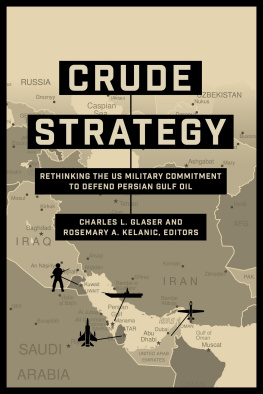
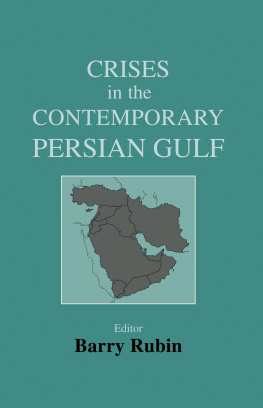
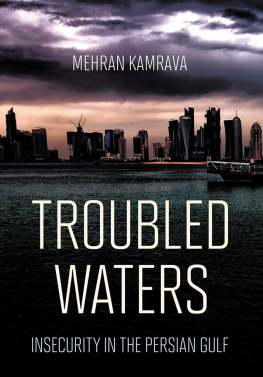
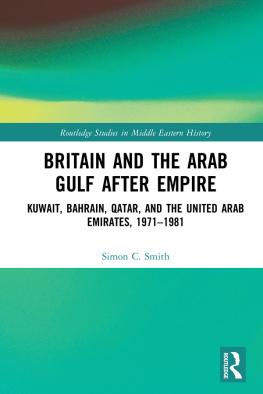
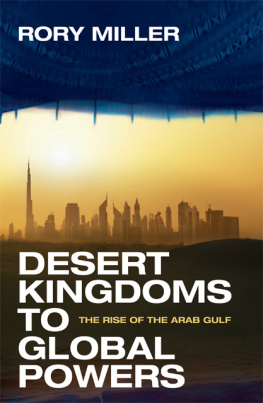
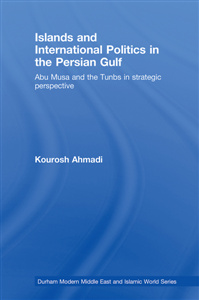
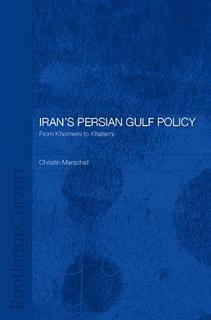


 This paper meets the requirements of ANSI/NISO z39.48-1992
This paper meets the requirements of ANSI/NISO z39.48-1992